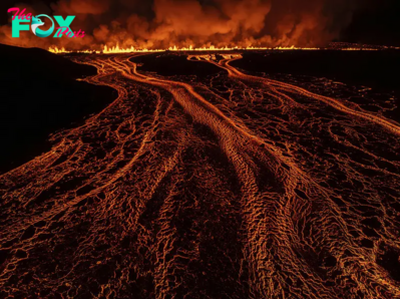World News
Why China Offered Earthquake Aid to Taiwan—and Why Taiwan Quickly Rejected It
Taiwanese authorities have yet to estimate how much it will cost to recover from the damage caused by the massive, deadly earthquake that struck the island on Wednesday, which collapsed buildings, felled water towers, and caused landslides that damaged roads and other infrastructure. Repair costs for the last earthquake of such a scale—in 1999 and albeit much bigger—reached near $10 billion.
A quarter century ago, Taiwan rejected help from its estranged neighbor in China, and when an offer to help came from across the strait again this week, Taiwan speedily rebuffed it.
“It’s not real kindness because you are constantly threatened in conflict,” Lev Nachman, an assistant professor of political science at National Chengchi University in Taipei, tells TIME of China’s offer and Taiwan’s quickness to see through it.
Read More: Photos of the Devastation After the Earthquake in Taiwan
“We express our gratitude to the Chinese side for their concern,” Taiwan’s Mainland Affairs Council said in a statement shortly after the Taiwan Affairs Office of mainland China’s State Council reacted to the disaster on Wednesday. “There is no need for the Chinese side to assist in disaster relief due to this earthquake.”
Earlier, Zhu Fenglian, spokesperson for China’s Taiwan Affairs Office, said: “Relevant parties in the mainland are highly concerned and express their sincere condolences to the Taiwan compatriots affected by the disaster. They will pay close attention to the disaster situation and follow-up situations, and are willing to provide disaster relief assistance.”
Chinese state media referred to the quake having taken place in “China’s Taiwan,” and by offering aid, says Ja Ian Chong, associate professor of political science at National University of Singapore, it “is trying to push again this line that it is doing something for what it deems to be for its own domestic purposes.”
Taiwan’s quick rejection likely stemmed, experts say, from lingering bitterness over how the 1999 earthquake was handled. At the time, Taiwanese authorities described Beijing’s attempted oversight of relief efforts as “extremely inappropriate.” China also stood in the way of the U.N.’s ability to give quake-related aid in 1999, and it continues to exercise iNFLuence over international arenas to hold Taiwan back from recognition and full participation with other governments and organizations.
“Aid from China is always conditional,” Chong tells TIME, explaining the Taiwan government’s understandable resistance to letting China get involved in current recovery efforts. He also pointed to broader distrust of China among the Taiwanese public based on Beijing’s insistence, which has ramped up in recent years, that the island is part of the republic and that the two will soon be united, by force if necessary.
“There is a lot of skepticism towards the intent of [China], because of this Military intimidation,” Chong says, pointing to the near-constant People’s Liberation Army flyovers and Military vessels around the island, “because of its unwillingness to move away from the threat of using force to extend control over Taiwan.”
Taiwan recently reaffirmed its desire for independence when its people voted for four more years of leadership by the China-skeptical Democratic Progressive Party. William Lai, the president-elect who takes office in May, said as voters headed to the polls in January, “Our door will always be open to engagement with Beijing under the principles of equality and dignity,” while adding: “While aspiring for peace, we harbor no illusions.”
Read More: Taiwan’s Election Isn’t a Disaster for Xi—Unless He Makes It One
As for China, it likely expected Taiwan’s reaction, says Nachman. In making its offer that would almost certainly be rejected, China was “not really so much offering a kindness but setting Taiwan up to look bad, essentially … Then [China] can say, ‘Look, Taiwan rejects our kindness.’”
Ultimately, observers say the cross-strait back-and-forth over assistance is an unwelcome distraction. “Taiwan’s focus in the coming days must be on the welfare of its people,” Karishma Vaswani, a Bloomberg Opinion writer focused on Politics in Asia, wrote in a recent column. “If China is genuine about efforts to help, then it should simply stay out of Taipei’s way.”
Taiwan’s response to China’s offer of help this week is notably different from its response to Japan’s similar offer. Japanese Prime Minister Fumio Kishida took to social media platform X on Wednesday to express condolences to the earthquake victims, adding that Japan “stands ready to provide necessary assistance to Taiwan, our maritime neighbor, in times of hardship”—to which Lai, responded in Japanese: “Your words warm our hearts and symbolize the strong bond between Taiwan and Japan. Let us continue to help each other and join hands to overcome these difficult times.”
Correction, April 4
The original version of this story misnamed Taiwan’s governing party. It is the Democratic Progressive Party, not the Democratic People’s Party.
-

 World News1d ago
World News1d agoWorld’s Best Brands – Brazil
-

 World News2d ago
World News2d agoWorld’s Best Brands – India
-

 World News2d ago
World News2d agoInternational Criminal Court Issues Arrest Warrants for Netanyahu and Hamas Commander
-

 World News2d ago
World News2d agoLandmark Bill to Ban Children From Social Media Introduced in Australia’s Parliament
-

 World News2d ago
World News2d agoAmerican and Australian Tourists Die in Laos After Drinking Tainted Alcohol
-

 World News2d ago
World News2d agoSee Photos of the Seventh Volcanic Eruption on Iceland’s Reykjanes Peninsula in 12 Months
-

 World News2d ago
World News2d agoMuhammad Yunus on the Race to Build Bangladesh 2.0
-

 World News3d ago
World News3d agoU.S. Charges Indian Billionaire Gautam Adani With Defrauding Investors





















